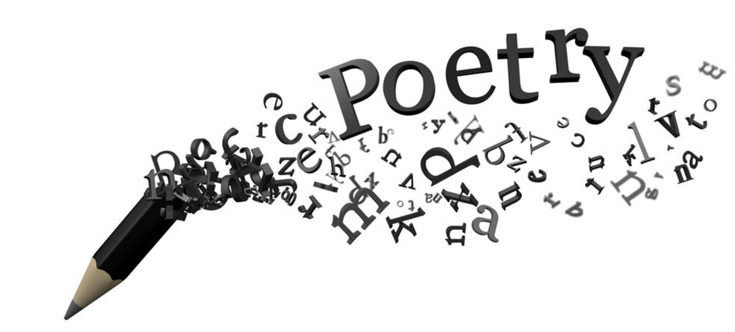Column By Melissa Martin

Physical pain. Emotional pain. Spiritual pain. Take a poetry pill, rub on a soothing balm in the form of a poem, or write rhyming or non-rhyming prose.
From my early days of childhood through adolescence and through adulthood, I’ve followed my affection for poetry. Sometimes I traveled away from verse, stanza, sonnet, but found myself returning again and again—mesmerized by the dancing, prancing, and romancing of words. I find that metaphor, imagery and symbolism combine in the creating of personal poems. Add any type of painful experience and writing therapy via poetry is birthed. It’s both the process (journey) and the product (destination) that evokes the art of healing.
Poetry and Physical Pain
Sarah Friebert, a physician at Akron’s Children’s Hospital in Ohio, has integrated poetry into her clinical practice; a pediatric palliative care center where children are visited by a writer-in-residence who helps them create poems and stories, reported a 2018 online article in Nautilus.
The Poetry Foundation and the Poetry in America Initiative provide support for medical school students to attend the annual Hippocrates Poetry and Medicine Symposium. www.hippocrates-poetry.org.
Bellevue Literary Review is a unique literary magazine for fiction writing about medicine (founded in 2000 by physicians) that examines human existence through the prism of health and healing, illness and disease. www.blr.med.nyu.edu/.
Every Friday, Pulse–voices from the heart of medicine publishes and distributes a first-person story or poem about health care. Pulse was created by the Department of Family and Social Medicine at Montefiore Medical Center and Albert Einstein College of Medicine. www.pulsevoices.org.
“Some of you say, “Joy is greater than sorrow,” and others say, “Nay, sorrow is the greater.” But I say unto you, they are inseparable. Together they come, and when one sits alone with you at your board, remember that the other is asleep upon your bed,” writes Kahlil Gibran in his book, The Prophet.
Poetry and Emotional Pain
Poetry is when an emotion has found its thought and the thought has found words,” surmised Robert Frost.
Why are some people drawn to poetry during times of suffering? Is it the thinking, emoting via pen and paper, and reflecting that help diminish psychological pain? Is it reading and connecting to the pain of others through poems of hurt, hope, and healing?
Poetry therapy gives a voice to what exists at the epicenter of our internal universe. Through the five senses: touch, sight, hearing, smell, taste; we absorb our environment and make meaning of the world. At times, our inner sponge becomes saturated with emotional pollution and needs squeezing. Writing is a tool of cleansing for clients and counselors.
The National Association for Poetry Therapy is a nonprofit international organization promoting healing through written language, symbol, and story. The Journal of Poetry Therapy is a peer-reviewed publication. www.poetrytherapy.org.
Poetry and Spiritual Pain
Poetry therapy gives a voice to our pain, our sorrow, the emotional verbiage inside our being that needs expression. The encumbered messages inside our heart and soul want to be heard.
The following excerpt is from Kahlil Gibran, The Prophet.
“And a woman spoke, saying, “Tell us of Pain.”
And he said: Your pain is the breaking of the shell that encloses your understanding.
Even as the stone of the fruit must break, that its heart may stand in the sun, so must you know pain.
And could you keep your heart in wonder at the daily miracles of your life, your pain would not seem less wondrous than your joy;
And you would accept the seasons of your heart, even as you have always accepted the seasons that pass over your fields.
And you would watch with serenity through the winters of your grief.
Much of your pain is self-chosen.
It is the bitter potion by which the physician within you heals your sick self.
Therefore trust the physician, and drink his remedy in silence and tranquillity:
For his hand, though heavy and hard, is guided by the tender hand of the Unseen,
And the cup he brings, though it burn your lips, has been fashioned of the clay which the
Potter has moistened with His own sacred tears.”
Poetry Resources
The Poetry Foundation, publisher of Poetry magazine, is an independent literary organization committed to a vigorous presence for the celebration of poetry. www.poetryfoundation.org.
I invite you to read and write poetry.
Melissa Martin, Ph.D., is an author, columnist, educator, and therapist. She lives in Ohio. www.melissamartinchildrensauthor.com. Contact her at melissamcolumnist@gmail.com.
…








